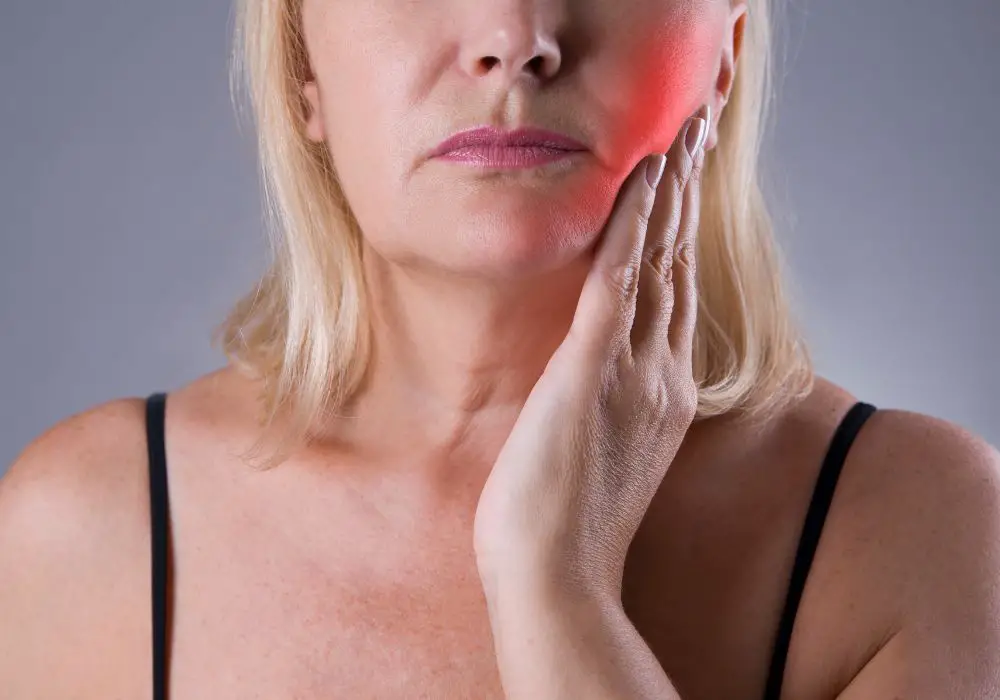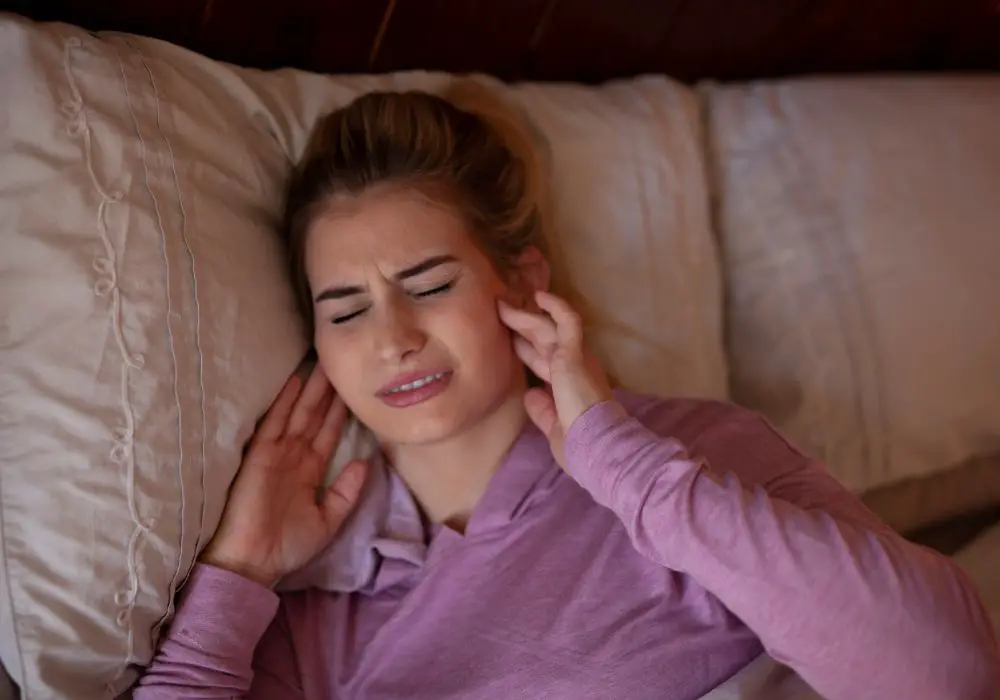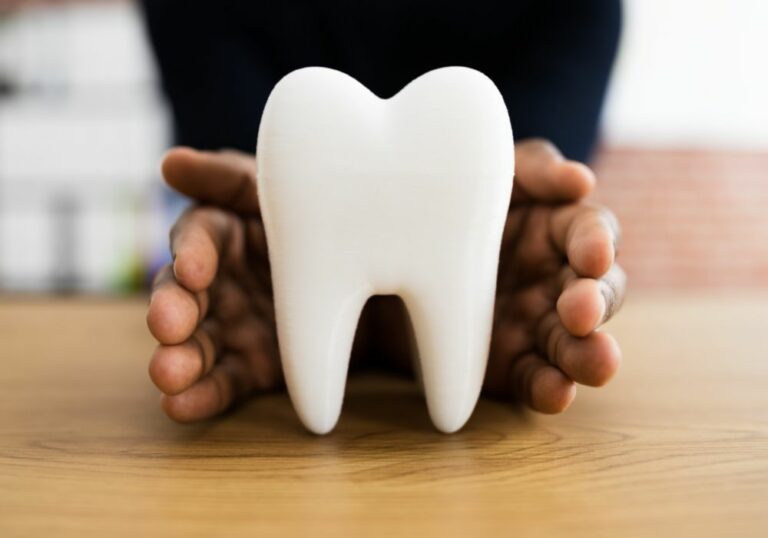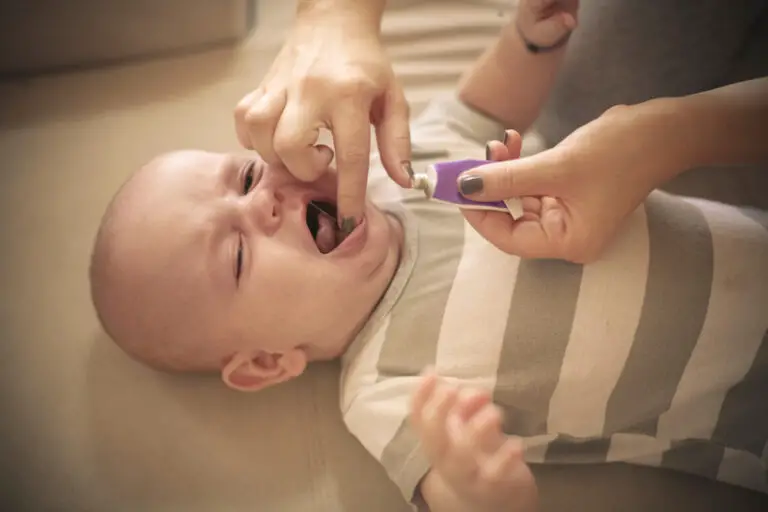If you’re experiencing tooth pain while chewing, it can be a frustrating and uncomfortable experience. Tooth pain can range from mild to severe, and can be caused by a variety of factors. It’s important to address the underlying cause of the pain in order to find relief and prevent further damage to your teeth.
One common cause of tooth pain while chewing is tooth decay. When a cavity forms in your tooth, it can cause sensitivity and pain when you bite down on the affected tooth. Other potential causes of tooth pain while chewing include gum disease, tooth abscesses, and damage to the nerves in your teeth. If you’re experiencing tooth pain while chewing, it’s important to see your dentist as soon as possible to determine the cause of the pain and receive appropriate treatment.
Fortunately, there are several steps you can take to help alleviate tooth pain while chewing. These may include taking over-the-counter pain relievers, avoiding hard or crunchy foods, and practicing good oral hygiene habits such as brushing and flossing regularly. Your dentist may also recommend treatments such as fillings, root canals, or extractions depending on the severity and cause of your tooth pain. By taking steps to address your tooth pain, you can improve your oral health and enjoy eating without discomfort.
Understanding the Pain

If you experience tooth pain when chewing, it can be a sign of an underlying dental issue. Understanding the symptoms and possible causes of tooth pain can help you determine the best course of action to alleviate your discomfort.
Identifying the Symptoms
Tooth pain can manifest in different ways, including:
- Sharp, stabbing pain
- Dull, throbbing pain
- Sensitivity to hot or cold temperatures
- Pain when biting or chewing
- Swelling or inflammation around the affected tooth
- Discoloration of the tooth
If you experience any of these symptoms, it is important to schedule an appointment with your dentist as soon as possible to determine the cause of your tooth pain.
Possible Causes of Tooth Pain
Tooth pain when chewing can be caused by several factors, including:
- Dental decay: Cavities can cause tooth pain, especially when biting down on food.
- Gum disease: Inflammation and infection of the gums can cause tooth pain and sensitivity.
- Tooth fracture: A cracked or broken tooth can cause pain when chewing.
- Tooth abscess: An infection at the root of a tooth can cause severe pain when pressure is applied.
- Bruxism: Grinding or clenching your teeth can cause pain and sensitivity in the teeth and jaw.
Your dentist can perform a thorough examination to determine the cause of your tooth pain and recommend the appropriate treatment. It is important to address tooth pain promptly to prevent further damage and discomfort.
Immediate Relief for Tooth Pain
When your teeth hurt when you chew, it can be difficult to focus on anything else. Fortunately, there are some things you can do for immediate relief. Here are a few options:
Cold Compress
A cold compress can help reduce inflammation and numb the area around the tooth. To make a cold compress, wrap a few ice cubes in a towel and hold it against your cheek for 15-20 minutes at a time. You can repeat this process as needed throughout the day.
Over-the-Counter Painkillers
Over-the-counter painkillers like acetaminophen and ibuprofen can help reduce pain and inflammation. Be sure to follow the instructions on the label and don’t exceed the recommended dosage. If you have any medical conditions or take any medications, be sure to check with your doctor before taking any new medications.
Salt Water Rinse
A salt water rinse can help reduce inflammation and kill bacteria in the mouth. To make a salt water rinse, mix 1/2 teaspoon of salt into a glass of warm water. Swish the solution around in your mouth for 30 seconds before spitting it out. You can repeat this process several times a day.
Remember, these remedies are only for temporary relief. If your tooth pain persists or worsens, it’s important to see a dentist as soon as possible to address the underlying issue.
Long-Term Solutions

If your teeth hurt when you chew, it’s important to take steps to address the underlying issue. Here are some long-term solutions to consider:
Regular Dental Check-ups
Regular dental check-ups are essential to maintaining good oral health and catching problems early. During your check-up, your dentist can identify any issues that may be causing your teeth to hurt when you chew and recommend the appropriate treatment. It’s recommended that you visit your dentist at least once every six months.
Proper Oral Hygiene
Proper oral hygiene is crucial for preventing tooth decay and gum disease, which can lead to tooth pain. Be sure to brush your teeth at least twice a day with fluoride toothpaste and floss daily. Additionally, consider using an antiseptic mouthwash to kill bacteria that may be causing tooth pain.
Healthy Diet
A healthy diet can also help prevent tooth pain. Avoid sugary and acidic foods, which can erode tooth enamel and lead to decay. Instead, opt for a diet rich in fruits, vegetables, lean protein, and whole grains. Drinking plenty of water can also help keep your mouth clean and hydrated.
By following these long-term solutions, you can help prevent tooth pain when chewing and maintain good oral health. Remember to visit your dentist regularly, practice proper oral hygiene, and eat a healthy diet.
When to See a Dentist

If you are experiencing tooth pain while chewing, it is important to know when to seek professional help. Here are some signs that indicate it’s time to visit a dentist:
Persistent Pain
If you have been experiencing tooth pain for more than a day or two, it’s time to see a dentist. Persistent pain can be a sign of a more serious issue, such as a cavity or infection, and should not be ignored.
Swelling or Discomfort
If you notice any swelling or discomfort in your gums or jaw, it’s important to see a dentist as soon as possible. This could be a sign of an abscess or infection, which can spread and cause serious health problems if left untreated.
Pain While Eating
If you experience pain while eating, especially when chewing hard or crunchy foods, it’s likely that there is an issue with one or more of your teeth. A dentist can help diagnose the problem and recommend the appropriate treatment.
Remember, it’s always better to be safe than sorry when it comes to your dental health. If you are experiencing any of these symptoms, don’t hesitate to make an appointment with your dentist.
Frequently Asked Questions
Why do my teeth hurt when I chew?
Tooth pain while chewing can be caused by a variety of factors. It could be due to tooth decay, a cracked tooth, gum disease, or even a sinus infection. When you chew, the pressure on the affected tooth can cause pain, discomfort, or sensitivity. It is important to visit a dentist to determine the underlying cause of your tooth pain.
How can I relieve tooth pain from chewing?
If you are experiencing tooth pain while chewing, there are a few things you can do to relieve the discomfort. Avoid hard or crunchy foods and stick to softer foods that are easier to chew. You can also take over-the-counter pain relievers such as ibuprofen or acetaminophen. Applying a cold compress to the affected area can also help reduce pain and swelling.
What could be causing my tooth pain when I bite down?
Tooth pain when biting down can be caused by a number of factors, including tooth decay, a cracked tooth, or a loose filling. It is important to see a dentist as soon as possible to determine the underlying cause and prevent further damage to the tooth.
What are some home remedies for tooth pain when chewing?
While it is important to see a dentist for tooth pain, there are some home remedies that can help alleviate the discomfort in the meantime. Saltwater rinses can help reduce inflammation and promote healing. Applying a warm compress to the affected area can also help reduce pain and swelling. Clove oil, which has natural pain-relieving properties, can also be applied directly to the affected tooth.
What should I do if my back tooth hurts when I chew?
If your back tooth hurts when you chew, it could be due to a number of factors, including tooth decay, gum disease, or a cracked tooth. It is important to see a dentist to determine the underlying cause of the pain and prevent further damage to the tooth.
Is it normal for all of my teeth to hurt suddenly when I chew?
No, sudden tooth pain while chewing is not normal and could be a sign of a dental issue. It is important to see a dentist as soon as possible to determine the cause of the pain and prevent further damage to your teeth.







